DHS Seminar: Alondra Nelson
Date:
Location:
Title: "The Social Life of DNA"
Alondra Nelson, Department of Sociology, Columbia University
Title: "The Social Life of DNA"
Alondra Nelson, Department of Sociology, Columbia University
Title: "Fictioning Early Modernity: Storytelling with the History of Science”
Carla Nappi, Department of History, The University of British Columbia
Title: "Experimental Camps, Parallel Development, and Archives: Constructing the Narrative of Scientific Agriculture in 1960s Mexico"
Gabriela Soto Laveaga, History of Science Department, Harvard University
Title: "Futures Lag: The Material Political Economy of High-Frequency Trading"
Donald MacKenzie, School of Social & Political Science, The University of Edinburgh
Title: "AIDS Origins: Can stories that don’t tell well still become history?"
S. Lochlann Jain, Department of Anthropology, Stanford University
THE NOVEMBER 10 SEMINAR HAS BEEN CANCELED!
Title: "Interior Frontiers' as Political Concept, Diagnostic, and Dispotif"
Ann Stoler, The New School for Social Research, New York
Title: “AIDS Origins: Can Stories that Don’t Tell Well Still Become History?"
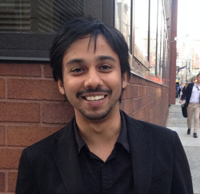 Dwai Banerjee,
Dwai Banerjee,
Assistant Professor,
Program in Science, Technology and Society at MIT
Abstract:
Indian corporations have manufactured low-cost drugs for the global poor for over three decades. Indeed, activist mobilizations at the height of the HIV-AIDS epidemic revealed a vast cost gap between global brands and Indian generics, much to the embarrassment of Euro-American pharma. In this talk, I argue that 21st century drug access controversies focus on a new kind and class of ‘living’ anti-cancer drugs - biologics. As cancer appears in the public health imagination as a crisis, it demands a new battle for the right to drugs. The fight over anticancer biologics reveal new flows of international capital and new intersections of genes and trade regimes. Yet, controversies around biologics imperil the legacy of HIV-AIDS activism, and the future of life-saving drugs. In sum, I describe how the future of the rights of cancer patients across the world rests calamitously in a shifting balance of power between global south interests and Euro-American capital.
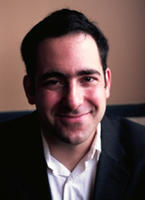 Paul Kramer,
Paul Kramer,
Department of History, Vanderbilt University
"Sex, Disease and Military Empire: The Case of the Philippine-American War"
Abstract:
Across the American Century, commercialized sex burgeoned with the arrival of US military forces, and commanders and public health officials worried about its implications for troop readiness and fighting power, far less its impacts on local sex workers and their communities. Through the historical reconstruction of the US military's approaches to venereal disease control, and military and domestic US political debates about sex and disease at the edges of empire, one can illuminate the workings of race, gender, sexuality, and the costs of militarized world power. This talk will present some of the broad contours of an emerging literature, and its scholarly and political stakes, before discussing in depth the case of military-regulated prostitution during the Philippine-American War, the first and foundational instance of US military authorities grappling with these questions.
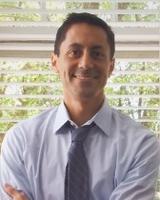 Paul Ramirez,
Paul Ramirez,
Assistant Professor, Department of History, Northwestern University
"Rumors, Speech Acts, and Medical Facts: An Oral History of Mexico's First Vaccination Campaigns"
Abstract: A global vaccinating expedition launched from Spain in the early 1800s made Jenner's cowpox vaccine available to communities of peasants throughout Spanish America. In Mexico, the vast majority of those Indian tributaries who were subsequently vaccinated had no prior experience with immunization technologies of any kind. What kinds of local, viceregal, or Atlantic knowledge contributed to the "domestication" of immunization in these early years of practice? Part of a book project on reforms in disease management during Mexico's Enlightenment, this talk draws on a cache of rumors reported in the months and years following the expedition, including charges of enslavement, sorcery, forced enlistment into Spain's armies, and kidnapping, to discern the domains of colonial knowledge and conventions of communication that were relevant to the introduction of immunization among non-literate peasants. In so doing it suggests how political processes at the village and parish level rendered this knowledge "fact" among patients and vaccinators alike.
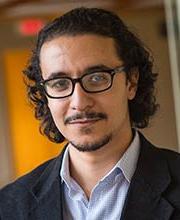 Ahmed Ragab,
Ahmed Ragab,
Associate Professor of Science and Religion, Harvard Divinity School
"Islam as a Postcolony: Science, History and Modernism in the Making of Ethnoreligious Identities"
Abstract: In this paper, I look at the making of Islam as an ethno-religious and postcolonial identity through scientific and historical narratives. I argue that science-narratives contribute to the production of Islam as a global identity-to-be in a contextual exercise of meaning-making that deploys the present in writing a past and forging a chosen future. In this context, science-narratives become, at once, sites of colonization, engagement and resistance as they operate to formulate the collective identity that makes Muslims, and that links and separates them from Islam. Here, Islam is deployed to police the consumption of technoscience in a manner that distinguished between good and bad Muslims, and that questions the ability or worth of Muslims acquiring scientific knowledge. I argue that these scientific narratives, manifested through a colonial archive and invested in Eurocentric mythology, operate to develop new meanings of Islam, as a rarefied category, and Muslims, as an ur-identity.
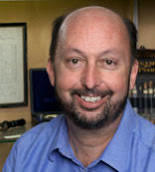 Warwick Anderson,
Warwick Anderson,
Department of History,
University of Sydney
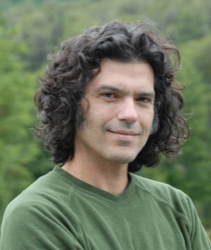 Gastón Gordillo,
Gastón Gordillo,
Department of Anthropology, University of British Columbia
"Ambient Thickness: On the Atmospheric Materiality of the Anthropocene"
Abstract: In the humanities, concepts such as “place” and “territory” help us account for the social-historical nature of space; but these are anthropocentric concepts that are unable to explain those spatial dimensions that are indifferent to how humans experience them, such as the intensification of weather events associated with climate change. Drawing from my fieldwork about deforestation by agribusiness in northern Argentina, I propose to analyze the shifting atmospheres affected by environmental disruptions through the concept of “ambient thickness”: i.e. the ambient intensities that in the form of heat, droughts, or wind affect human practice and sensory experience. Attentiveness to how local people are affected by, and respond to, shifting levels of ambient thickness, I argue, can help us appreciate the often elusive, ever-shifting but palpable materiality of the spatial-environmental transformations and turbulences that define “the Anthropocene.”
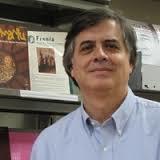 Marcos Cueto
Marcos Cueto
Casa de Oswaldo Cruz, Fiocruz
Rio de Janeiro, Brazil
"Lost in Translation: AIDS, Brazil and Global Health"
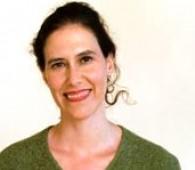 Marcy Norton
Marcy Norton
Associate Professor of History, University of Pennsylvania
“Cacao and the Quetzal: Reflections on Microhistory, Indigenous Technologies and Ontologies, and Early Modern Natural History”
Abstract: For a long time it was taken for granted that the emergence of early modern science was an “internalist” European history, meaning that paradigm shifts, epistemological ruptures, and incremental changes were related to European processes and/or European actors. The global turn has challenged internalist accounts and has led to histories that focus on the role of non-European people, places, and things in the creation of modern science, particularly in natural history and medicine. These “externalist” accounts of European science have catalyzed the development of a new set of analytic tools but also point to a need for more reflexivity about method. In this paper, by focusing on case studies from my earlier work on plants and current research on animals, I will discuss how microhistory is uniquely suited to writing history that reveals the role of Native American technologies and ontologies in the formation of early modern science.
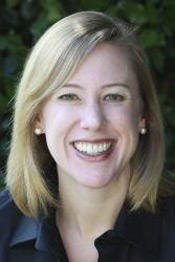 Jennifer Derr,
Jennifer Derr,
Department of History, UC Santa Cruz
"Origin Stories: Constructing the liver in Egypt through epidemics of schistosomiasis and hepatitis C"
Abstract:
During the twentieth century, Egypt was the site of two interconnected disease epidemics that target the liver. With the construction of dams on the Nile River and the spread of perennial irrigation, millions of Egyptians were infected with the parasitic disease schistosomiasis. One symptom of infection with the Schistosoma mansoni parasite is hepatic fibrosis; by the early twentieth century, doctors noted that liver disease was widespread among their patients. Beginning in the 1920s, millions of Egyptians also fell ill with hepatitis C, the product of an extensive nationwide treatment campaign for schistosomiasis. This talk explores the historical origins of schistosomiasis and hepatitis C in Egypt, and the locally specific production of the liver as a site of medical knowledge and practice.
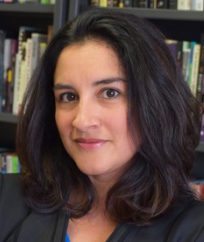 Eden Medina,
Eden Medina,
School Of Informatics, Computing, and Engineering,
Indiana University
"Unmaking Truth After Dictatorship: Science, Memory, and the Disappeared"
Abstract:
In 2006, the Chilean government announced the shocking news that the scientists at the Medical Legal Service had misidentified at least half of the remains exhumed from the largest anonymous gravesite of those killed by the Pinochet dictatorship. This talk connects this story of identification and error to the unique contours of Chile’s struggle for truth, justice, and reconciliation in the aftermath of the Pinochet dictatorship and the way scientists, families, and members of the justice system—lawyers and judges—experienced these struggles. In particular, I will explore why the misidentifications occurred and what led judges, scientists, and members of human rights organizations to question the correctness of the identifications. I use this case study to connect science and technology history to the history of Chile’s democratic transition during the 1990s and 2000s.
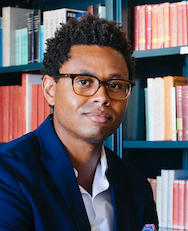 Terence Keel
Terence Keel
The Department of African American Studies,
University of California, Los Angeles
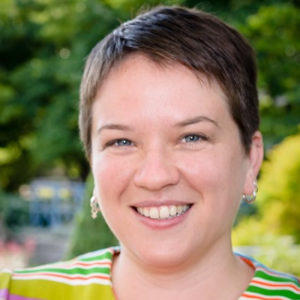 Nicole Nelson
Nicole Nelson
Department of History
University of Wisconsin, Madison
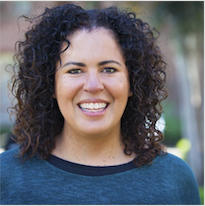 Safiya Umoja Noble
Safiya Umoja Noble
Annenberg School of Communication
USC